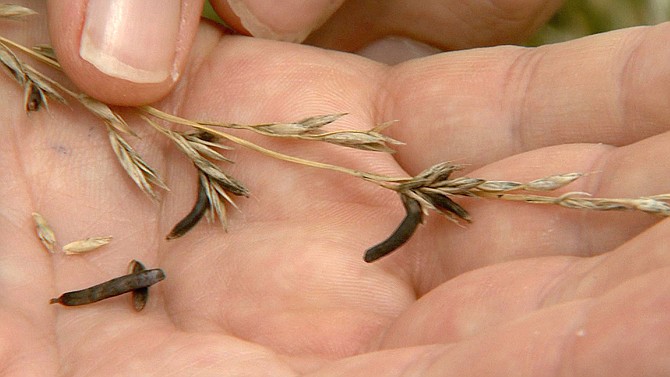Area farmers are being warned to keep an eye out for the fungus ergot.
"Ergot normally appears in small pockets, but this year seems to be prevalent statewide," Craig Roberts, University of Missouri Extension forage specialist, said in a press release.
The warning was prompted by a case in northeastern Missouri where one farmer lost four cattle in early July - ergot produces alkaloid compounds that are toxic to livestock and humans. According to the release, ergot bodies look like small rodent droppings and are easily visible in the seed head of cereal grains such as barley, oats, wheat, triticale and rye as well as common grasses such as timothy and tall fescue.
Heather Smith, a livestock specialist with the Callaway Extension office, said the weather this year has been conducive to the spread of ergot.
"With a cool, wet spring and now all of a sudden really hot weather, that's when the fungus kind of takes off," Smith said. "We're just now starting to see it. It's not a major concern, we just want people to be aware.
"If cattle managers are managing their fescue like they should be, they shouldn't have any problems with it."
She said some of the signs livestock may have been poisoned by ergot - consumption of which constricts the blood vessels - include rapid breathing, standing in water or shade all day (it increases their body temperature) and sometimes the tail will fall off or the ears will start to slough away because of decreased blood circulation.
"If you see those signs, you need to remove them from the field," Smith said.

